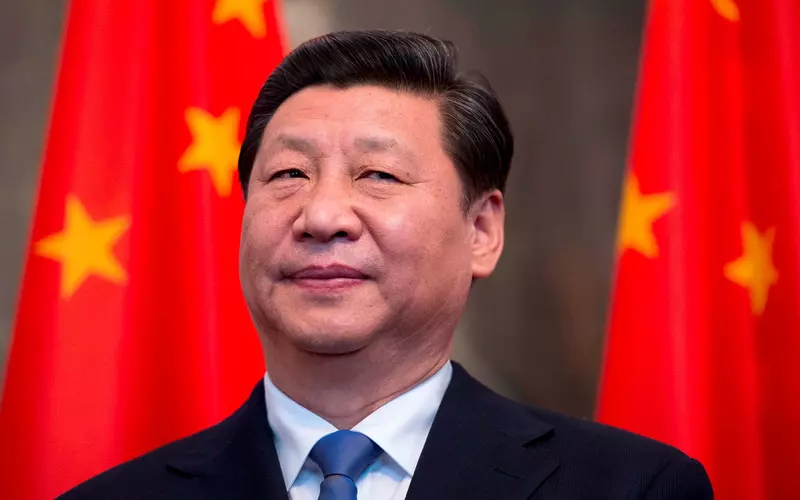In another crackdown on free speech and freedom of expression, Chinese-state bodies together with China’s cyberspace watchdog have announced that it will set up systems for algorithms and governance rules within the next three years or so. TechCrunch reports that according to a statement published on Chinese social media platform WeChat by the Cyberspace Administration of China, the new policy is set to influence user choice.
China proposes strict control of algorithms
The algorithms should strictly align with the interest of national security initiatives and the ruling party. Tightened algorithms-which the internet and online search runs on-will aim to crack down on anything the regulator deems a violation and “uphold core values of socialism.”
The statement further stated that adherence to correct value orientation, public opinion guidance and political direction will be of utmost importance while applying the algorithms. The Epoch Times reports that leaked internal government documents from 2017 reveal Chinese leader Xi Jinping wanted to “use technology to rule the internet” and articulated a vision to achieve complete control over every part of the online ecosystem, including manpower, applications, capital, quality and content. According to another internal document, the Chinese Communist Party (CCP) has been aggressively expanding its influence online in the “struggle” to control the internet.
Also read: China’s big money fails to silence Women’s Tennis Association over Peng’s disappearance
Long before the internet became popular among common households, China blocked a large chunk of foreign players from entering its digital space. It also initiated the Golden Shield Project, known as the Great Firewall, to monitor cyberspace. In 2016, CCP passed a cybersecurity law that allowed Chinese authorities to conduct spot-checks on a company’s network operations and stipulated network operators to store select data within China. Another law, called the National Intelligence Law states that citizens and organisations shall cooperate, support and assist with the state intelligence work per the law. It is pertinent to note that the CAC deliberately keeps ambiguous law with vague parameters. These loose definitions encourage companies to self-regulate, as they never know where the line is and provides regulators broad cover to crack down on them, according to a report by The Diplomat.
The Real Danger of China’s National Intelligence Law
CNBC reports that the CAC has also published a Chinese cyberspace authority publishes 'list of news sources' which contains 1358 news sources outlets which basically means Chinese people should only read or repost news from these listed websites. Internet news information service that reprints information must do so from the latest version of the list and those who go beyond the scope will be punished in accordance with laws and regulations. In what can only remind one of the Nazi eras, CAC has created telephone and online hotlines to encourage citizens to report violations. The public is also forbidden to discuss a list of 10 'rumours' published by the CAC.
A newly amended criminal code that punishes the slander of China’s martyrs and heroes is also being enforced by the CAC, according to a report by New York Times.
A woman in Beijing recently wrote a post about online mob lynching through which vitriolic attacks are made from the safety of anonymity and desk chairs. The post may have passed unnoticed, as provocative as it was, had she not added another line that mocked the toxic masculinity of users imagining themselves as Dong Cunrui, who according to Chinese Communist Party lore was a textbook war hero. He brought the party to power in 1949 and died valiantly during the civil war. The woman, identified in the court documents only as Xu was handed a 7-month sentence in prison. Sleights to the party have been punished under this law at least 15 times since March.
Also read: China could be preparing for water wars in Asia after completing serial dams in Tibet
Adam Ni, a director of the China Policy Center in Australia and editor of China Story, says that the party once could rely on the financial prosperity of a growing economy and authoritarian control of the security state to bolster its rule, but now appears to be utilizing historical and political orthodoxy as a foundation. Brookings reports that fanquanwenhua, or “fandom culture” is the latest target of this drive towards total domination, which refers to online youth forums that celebrate shared obsessions with celebrity idols6. “Toxic idol worship” threatens to corrupt the minds of future generations, according to the CAC. The crackdown is not restricted to pop culture icons but also expands to religious books. In October this year, BBC reports that Apple deleted one of the world's most popular Quran apps in China from its store because an official complained that it was an 'illegal religious text'.
Apple takes down Quran app in China
Observers believe the latest regulatory efforts by the CCP are a form of ideological control, although Chinese authorities have framed the governance rules for algorithms as necessary for the public good. New crackdowns in the past few months have been rolled out by the CCP over entertainment industries, gaming, education, and e-commerce. These initiatives were promoted by Chinese state media as a return to the essence of socialism and a “profound revolution.” China’s education ministry said in July that the confidence of the youngsters in supporting socialism and the CCP’s leadership will gradually form through introducing mandatory “Party leadership” related content into textbooks from grade school through college. The western world should take measures to resist this indoctrination, or risk being next in line.




















